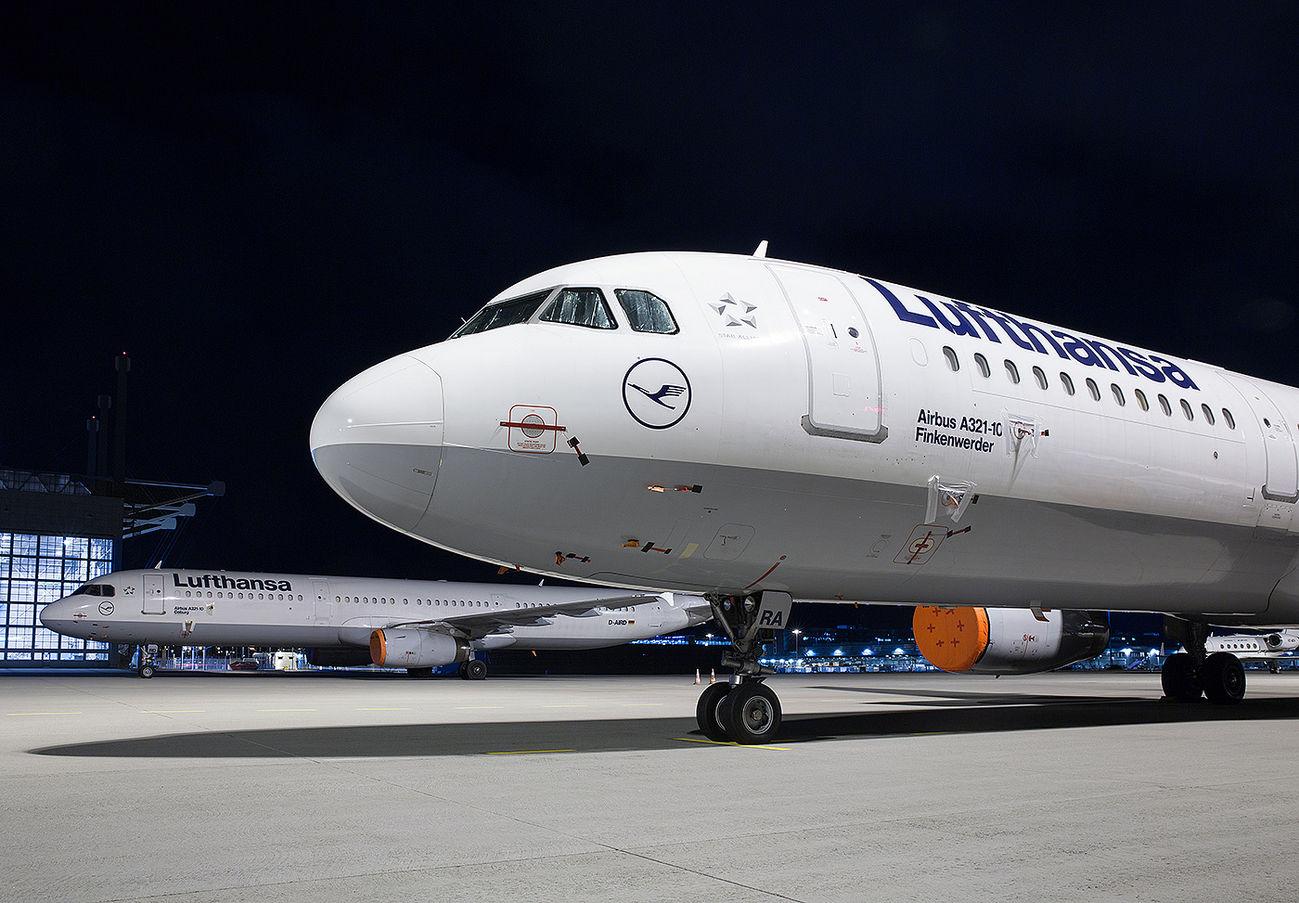Lufthansa, Norwegian Want State Aid As Crisis Deepens

FRANKFURT—Lufthansa Group has become the latest European airline to apply for state aid in its four home countries to address a nearing liquidity crisis, the airline confirmed Mar. 13.
“We are talking to the governments in our home markets about possible state aid,” a spokesperson said. These are Germany, Switzerland, Austria and Belgium for airlines Lufthansa, Swiss, Austrian and Brussels Airlines, respectively.
That even Europe’s biggest airline group, which has made substantial profits over the past few years, sees itself forced to take such action illustrates how critical the situation has become for European airlines within only a few days as demand has virtually disappeared. British Airways (BA) CEO Alex Cruz has titled an internal memo “The survival of British Airways.”
Norwegian, too, called for state support. “The corona crisis has now led to the need of powerful and extraordinary measures from the government in order to strengthen the company’s liquidity in a critical phase,” the company stated.
As a first measure, Norway removed its aviation tax. While Norwegian welcomed the decision it also stressed that “sadly, this is not enough as we are in a very demanding situation at the moment.” CEO Jacob Schram said that “we need exact measures to strengthen our liquidity in the short term immediately.” He added that “at the same time, it is crucial for us that the government will work on solutions for a phase two. We are asking for these solutions to come quickly. At the same time, we will take all measures necessary to reduce the financial losses this situation is causing us, no matter how painful they are.”
BA’s Cruz warned employees in the memo that COVID-19 was “more serious” than the SARS outbreak of 2003 and the terrorist attacks of Sept. 11, 2001. While the airline had a robust balance sheet, the company was “under immense pressure,” and would have to react fast and decisively in response to the situation.
He confirmed that the airline would be suspending routes and “parking aircraft in a way we have never had to before.” He also warned that “jobs will be lost, perhaps for a short period, perhaps longer term.”
In Germany, the federal government took the unprecedented step of guaranteeing unlimited loans to all large corporations. “We will use every means that is available to us,” Finance Minister Olaf Scholz said. “It is the bazooka with which we are doing the necessary now.”
Lufthansa CEO Carsten Spohr said the group will ground “at least two thirds of the fleet including 150 widebodies” in the coming days. The company is considering further measures, including the shut-down of some airlines or individual hubs. The group has hubs in Frankfurt, Munich, Vienna and Zurich. The spreading of the virus “has extreme consequences for travel behavior,” Spohr said in a recorded speech to employees.
As a result of the latest travel restrictions, Lufthansa will continue to operate only four of 70 daily flights to the U.S. from this weekend.
IATA and Airlines for Europe (A4E) meanwhile welcomed the decision by the European Commission to suspend the slot regulation until June 30. “Europe’s airlines will feel the impact of COVID-19 for months to come, and while this is a good first step we expect an extension of the waiver for the full summer season will likely be necessary,” A4E MD Thomas Reynaert said.
Air France-KLM said it had drawn down its revolving credit facility for a total of €1.1 billion ($1.22 billion), leaving it with more than €5.5 billion of total liquidity immediately available to face up to the COVID-19 crisis.
Separately, Air France-KLM Group CEO Ben Smith told employees that he had asked Air France CEO Anne Rigail and KLM CEO Pieter Elbers to rapidly prepare a crisis plan to allow the group to adapt to the “unprecedented situation.” Smith was speaking in a video message to staff the day after French President Emmanuel Macron tightened up France’s response to the COVID-19 outbreak, which include closing all schools until further notice.
The group said it based its financial strategy on long-term financing and high cash reserves supplemented by significant liquidity lines provided by major banks. “From the start of the COVID-19 crisis, the Air France-KLM Group implemented measures to protect its passengers and employees, but also to limit the impact of the virus on its profitability and preserve its financial flexibility,” it said.
In that context the group said it had drawn down the revolving credit facility agreement concluded on Apr. 29, 2015 and amended on Nov. 6, 2017 for a total amount of €1.1 billion divided into two tranches of €550 million, renewable successively at the request of Air France-KLM for periods of one, three or six months until Nov. 6, 2022.
Air France-KLM, which makes 15% of its passenger revenue on routes to and from the U.S., is one of the airline groups that will suffer a significant hit from the U.S. travel ban.
El Al Israel Airlines will temporary suspend all its operations from Mar. 15, except flights on strategic routes from Tel Aviv to New York JFK, Newark, Toronto, London Heathrow, Paris Charles de Gaulle, and Johannesburg In a Mar. 13 statement, CEO Gonen Usishkin said, “After evaluating the recent situation, El Al will gradually cease operations on most destinations from Sunday evening, Mar. 15, 2020. The carrier will keep monitoring the situation for its remaining flights.”







